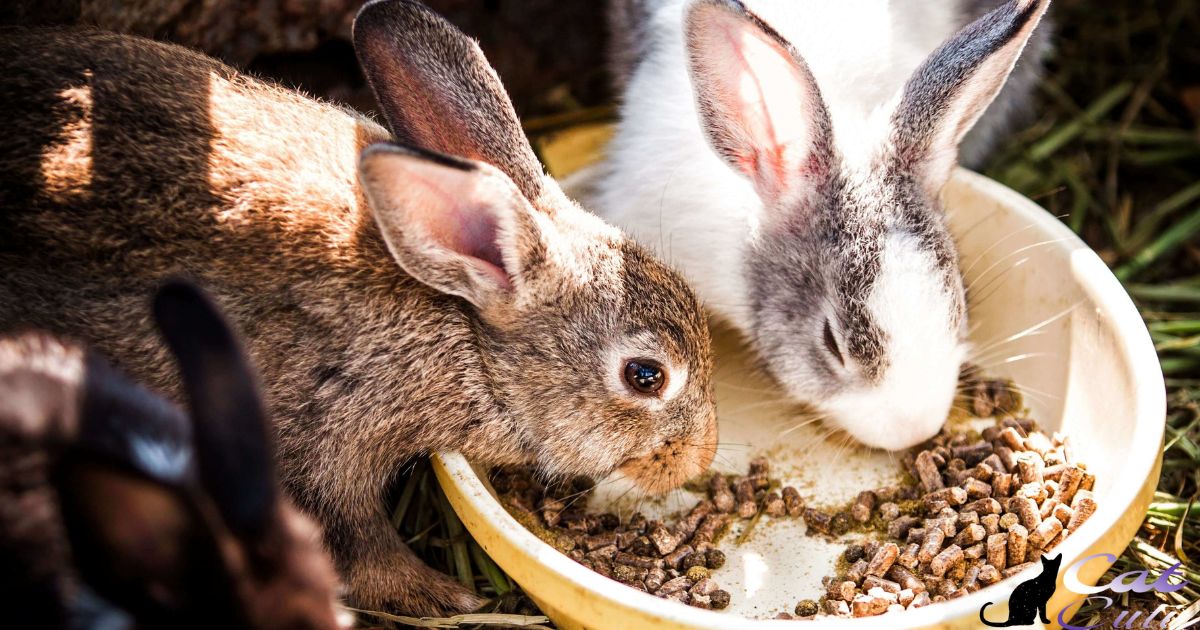Rabbits Eat Cat Food refers to the concept that rabbits may consume cat food as part of their diet. This phrase highlights a potential dietary behavior in rabbits, indicating that they might find cat food palatable and choose to eat it when available.
Curious about the dietary preferences of your furry friends? Wondering, ‘Can rabbits eat cat food?’ Uncover the answer to this intriguing question and ensure your pets are getting the right nutrition. Discover the dos and don’ts to keep your rabbits happy and healthy.
Feeding your rabbit cat food is not recommended as their primary diet. While they may nibble on it occasionally, it lacks essential nutrients vital for a rabbit’s well-being. Ensure a balanced and rabbit-friendly diet by providing hay, fresh vegetables, and pellets designed specifically for rabbits.
Understanding Cat Food Ingredients
When deciphering cat food ingredients, focus on the label. Check for meat as a primary component, ensuring it’s a quality source like chicken or fish. Grains and fillers may be present, so opt for options with fewer additives for a healthier choice.
Look for specific details like protein content and fat levels. Cats need a balanced diet for optimal health, so prioritize options that cater to their nutritional needs. By understanding cat food ingredients, you make informed choices that contribute to your feline friend’s well-being.
Nutritional Needs of Rabbits
Rabbits require a balanced diet to stay healthy. Their diet should consist mainly of hay, which provides essential fiber for proper digestion. Alongside hay, rabbits benefit from fresh vegetables like leafy greens and carrots, offering vital nutrients and keeping their teeth in good condition.
Pellets formulated specifically for rabbits can be part of their diet, ensuring they receive necessary vitamins and minerals. It’s crucial to monitor their food intake to prevent obesity, a common issue in pet rabbits. Always provide fresh water to keep them hydrated, and remember to introduce new foods gradually to avoid digestive issues.
Regular monitoring and cautious introduction of new foods are essential. However, it’s crucial to note that chickens eat cat food, which should be kept away from rabbits due to differing dietary requirements.
Differences in Rabbit and Cat Diets
Here’s a simple table outlining the differences in the diets of rabbits and cats:
| Aspect | Rabbit Diet | Cat Diet |
| Primary Food Source | Hay, fresh vegetables, limited pellets | Meat-based commercial cat food, some may include grains |
| Protein Requirements | Moderate protein, derived from plants and some pellets | High protein, primarily sourced from animal products |
| Fiber Content | High fiber from hay, essential for digestive health | Lower fiber content compared to rabbits |
| Nutritional Needs | Require a variety of nutrients from hay and vegetables | Need essential amino acids, vitamins, and minerals |
| Digestive System | Hindgut fermenters with a specialized digestive system | Obligate carnivores with a short digestive tract |
| Water Consumption | Consume water from food and may need additional sources | Cats may not drink enough water; wet cat food can help |
| Supplements | Limited need for supplementation; may need vitamin C | Generally, fewer supplements required |
| Treats | Limited fruit treats; avoid high-sugar content | Cat treats should be meat-based and nutritionally balanced |
| Feeding Schedule | Regular access to hay; vegetables daily; pellets in moderation | 2-3 meals of commercial cat food or home-prepared meals |
| Potential Health Issues | Dental problems, obesity if not monitored | Obesity, urinary tract issues, dental problems |
This table provides a general overview, and it’s important to note that individual animals may have unique dietary requirements. Always consult with a veterinarian for specific dietary recommendations tailored to your pet’s needs.
Potential Risks of Feeding Cat Food to Rabbits
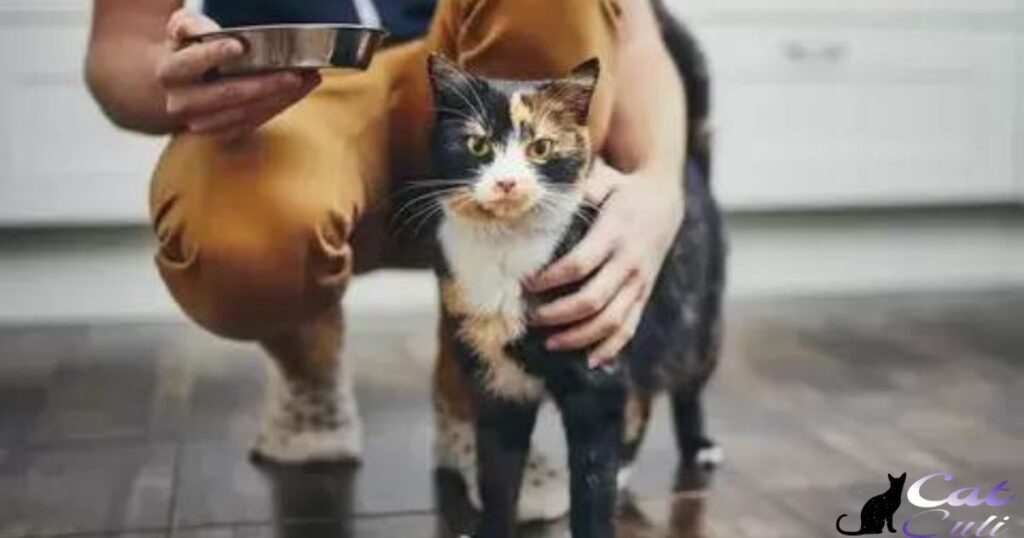
Feeding cat food to rabbits may pose potential risks to their health. Rabbit diets should primarily consist of hay, vegetables, and pellets specifically formulated for them. Cat food, designed for carnivores, lacks the essential fiber that rabbits need for proper digestion.
Rabbits fed a diet high in cat food may suffer from gastrointestinal issues such as diarrhea and obesity. Cat food may not provide the necessary nutrients for a rabbit’s overall well-being. To ensure a rabbit’s optimal health, it is crucial to stick to a diet tailored to their herbivorous needs, avoiding potential complications associated with inappropriate food choices.
Protein Content in Cat Food
Cat food contains essential proteins that contribute to your cat’s overall health. These proteins are vital for maintaining strong muscles, a healthy coat, and supporting various bodily functions. When choosing cat food, it’s important to check the protein content listed on the packaging to ensure it meets your cat’s nutritional needs.
Different cat foods may have varying protein levels, so understanding your cat’s specific requirements is crucial. High-quality protein sources, such as chicken or fish, are often preferred.
Impact on Rabbit Digestive System
The diet greatly affects a rabbit’s digestive system. High-fiber foods, like hay and fresh vegetables, promote healthy digestion. These help prevent issues such as gastrointestinal stasis.
A diet low in fiber, high in sugars, or sudden changes in food can lead to digestive problems. This includes issues like diarrhea or gas, impacting the overall health of the rabbit. Therefore, maintaining a balanced and consistent diet is crucial for a rabbit’s digestive well-being.
Vitamins and Minerals for Rabbits
Rabbits need a balanced diet to stay healthy. They require essential vitamins and minerals to support their overall well-being. These nutrients play a crucial role in maintaining their fur, bones, and immune system.
A rabbit’s diet should include vitamin A for good vision, vitamin D for strong bones, and vitamin C for a healthy immune system. Additionally, minerals like calcium are essential for their teeth and bones. Make sure your rabbit’s diet includes a variety of fresh vegetables and high-quality pellets to provide the necessary vitamins and minerals for a happy and thriving bunny.
Cat Food as a Supplement for Rabbits
Feeding rabbits cat food can be considered as a supplement. It contains proteins and nutrients beneficial for rabbits. However, moderation is crucial to maintain a balanced diet for optimal rabbit health.
Cat food offers a protein boost for rabbits. It’s essential to use it sparingly, ensuring the primary diet consists of hay, vegetables, and rabbit pellets. Introducing cat food as an occasional addition can contribute to a well-rounded nutritional plan for your rabbit, promoting overall well-being.
Balancing Rabbit’s Diet Safely
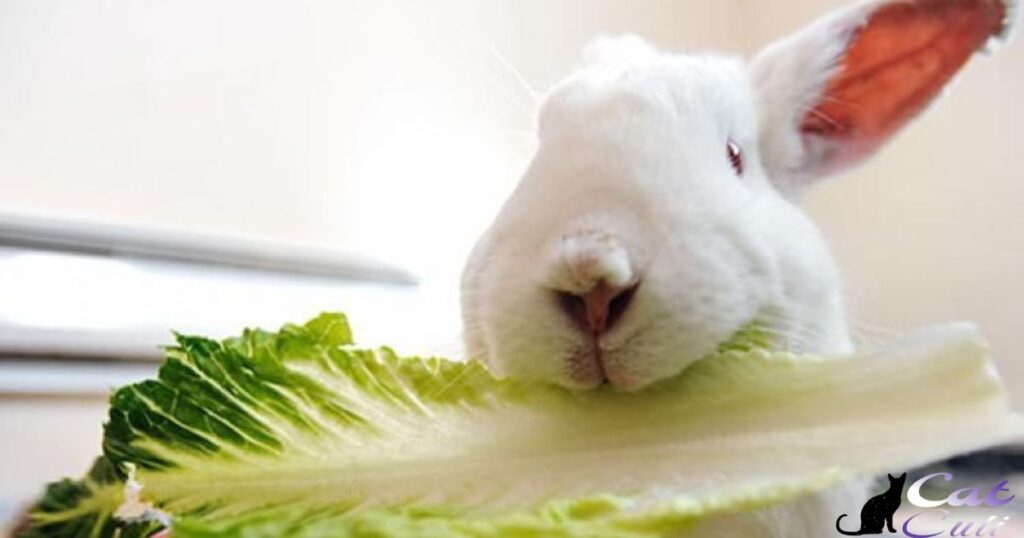
To keep your rabbit healthy, ensure a balanced diet. Feed them a variety of fresh vegetables like leafy greens and carrots. Include high-quality hay for proper digestion and dental health. Limit fruits and treats to prevent obesity.
Avoid relying solely on commercial pellets. Instead, focus on natural foods for a well-rounded diet. Regularly monitor your rabbit’s weight and adjust their portions accordingly. A balanced diet contributes to a happy and thriving bunny.
Common Ingredients in Cat Food
- Nutritional Balance: Common ingredients in cat food, such as meat, provide essential nutrients like protein, supporting your cat’s overall health and well-being.
- Digestive Health: Ingredients like rice and other grains aid in digestion, promoting a healthy gastrointestinal system for your feline friend.
- Shiny Coat and Skin: Omega-3 fatty acids found in fish ingredients contribute to a glossy coat and healthy skin, reducing the risk of skin issues in cats.
- Immune System Support: Common additives like vitamins and minerals strengthen your cat’s immune system, helping them resist illnesses and infections.
- Weight Management: Balanced ingredients help regulate your cat’s weight, preventing obesity and related health problems, ensuring a fit and active lifestyle.
Guidelines for Introducing Cat Food
When introducing cat food, start by choosing a high-quality brand. Check the ingredients to ensure it meets your cat’s nutritional needs. Gradually mix the new food with their current one, allowing your cat to adjust to the change slowly.
Monitor your cat’s reaction to the new food. Look for any signs of allergies or digestive issues. If your cat enjoys the new food and shows no adverse reactions, you can fully transition them to the new diet. Remember, a gradual introduction is key to a successful transition to a new cat food.
Observing Rabbit Health Signs
When checking rabbit health, look for bright and clear eyes. A healthy rabbit has a shiny coat with no bald patches. Check for clean ears and a dry nose, as any discharge may indicate a problem.
Observe their behavior – a happy rabbit will be alert and active. Watch for changes in eating habits and ensure they have a balanced diet. Regularly check their teeth to ensure they are not overgrown, which can affect their ability to eat. Monitoring these signs helps keep your rabbit in good health.
Veterinarian Recommendations
Veterinarians suggest choosing cat food with high protein content to keep your feline friend healthy. Opt for brands that list real meat as the main ingredient, avoiding those with excessive fillers.
When seeking veterinarian recommendations for cat food, focus on options rich in essential nutrients like omega-3 fatty acids and taurine. These elements contribute to a shiny coat and overall well-being.
Homemade vs. Commercial Rabbit Food
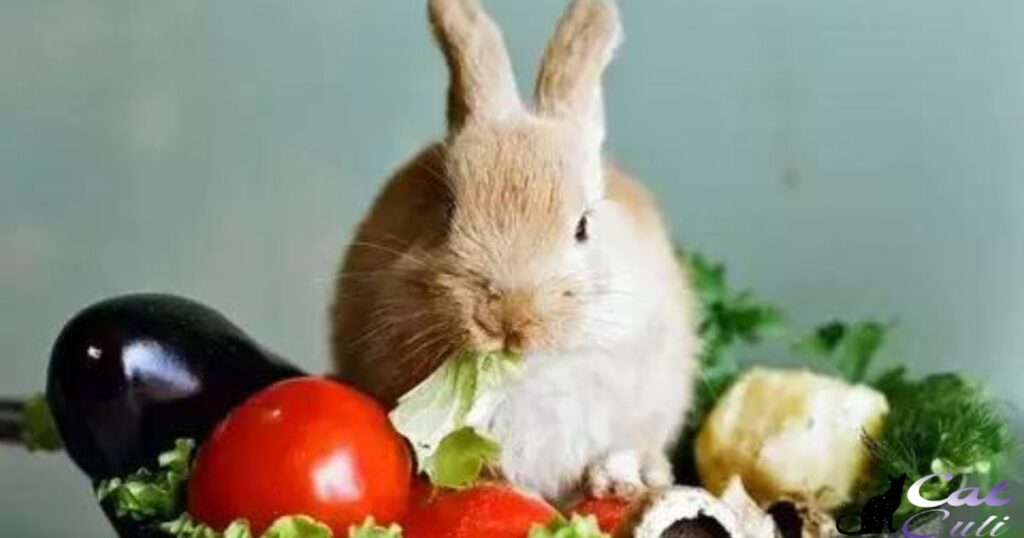
Homemade and commercial rabbit food differ in their sources and nutritional content. When you make rabbit food at home, you have control over the ingredients, ensuring freshness and quality. Homemade options often include a variety of vegetables, hay, and grains, offering a more diverse and natural diet for your furry friend.
On the other hand, commercial rabbit food provides convenience but may contain preservatives and additives. These store-bought options are formulated to meet specific dietary requirements, making them a convenient choice for many pet owners.
Cat Food Allergies in Rabbits
Rabbits can develop allergies to certain ingredients in cat food. Some common allergens include grains, artificial additives, and meat by-products. These allergies may lead to digestive issues, skin problems, or other health concerns in rabbits.
To prevent cat food allergies in rabbits, it’s essential to choose a high-quality rabbit-specific diet. Look for rabbit pellets that are free from potential allergens and provide a balanced mix of hay, vegetables, and pellets.
Regulating Portion Sizes for Rabbits
Controlling how much food your rabbit eats is important. Portion sizes for rabbits should be monitored to keep them healthy. Overfeeding can lead to obesity and health problems.
To regulate portion sizes, measure the rabbit’s daily food accurately. Use a measuring cup for pellets and ensure a variety of fresh vegetables. Adjust portions based on the rabbit’s size, weight, and activity level. Monitoring portion sizes helps maintain a balanced diet for your rabbit’s well-being.
Avoid filling the bowl to the brim, as rabbits may overeat. Provide hay in unlimited quantities for proper digestion. By regulating portion sizes, you promote a healthy lifestyle for your rabbit.
Potential Long-Term Effects
Cat food may have long-term effects on your pet. Some ingredients in commercial cat food might contribute to obesity in cats. Monitoring your cat’s diet and choosing high-quality, balanced cat food can help prevent potential long-term health issues.
Furthermore, certain additives in cat food may impact a cat’s digestive system over time. Consistent attention to the ingredients and nutritional content of cat food can contribute to your feline friend’s overall well-being.
Alternatives to Cat Food for Rabbits
- Dietary Variety: Offering alternatives to cat food for rabbits ensures a diverse diet. Rabbits benefit from a range of nutrients found in different foods, promoting overall health and well-being.
- Digestive Health: Many cat foods are high in protein, which can be excessive for rabbits. Providing alternatives helps maintain a proper balance of nutrients, preventing digestive issues and promoting a healthier gut.
- Weight Management: Cat food may be calorie-dense, leading to weight gain in rabbits. Opting for alternatives allows for better control of calorie intake, helping to manage and maintain an ideal weight for your rabbit.
- Preventing Allergies: Rabbits may develop allergies to certain ingredients in cat food. Offering alternative foods reduces the risk of allergic reactions, ensuring your rabbit enjoys a diet that suits its individual needs.
- Natural Foraging Instincts: Introducing a variety of rabbit-friendly foods encourages natural foraging behavior. This not only provides mental stimulation but also mimics the wild diet, promoting a happier and more engaged rabbit.
What Can I Feed My Rabbit If I Run Out Of Food
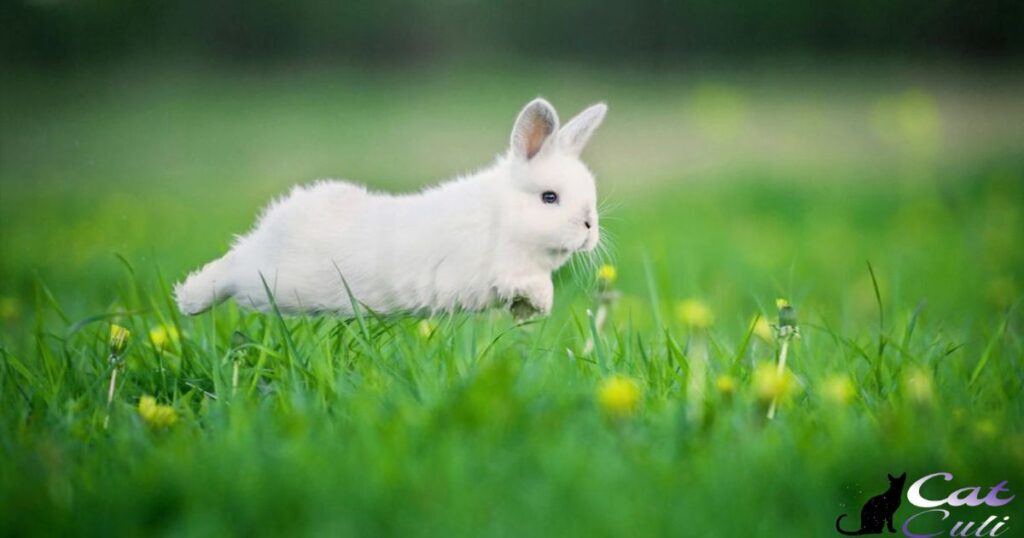
If your rabbit runs out of food, you can give it fresh vegetables like lettuce, carrots, or celery. These veggies provide essential nutrients and fiber for your rabbit’s health. Make sure to introduce new foods gradually to avoid upsetting its stomach.
Additionally, hay is a crucial part of a rabbit’s diet, so if you run out of pellets, offer your rabbit plenty of fresh hay. Hay helps maintain their dental health and digestive system. Always ensure your rabbit has access to clean water, as hydration is key for its well-being.
Can Chinchillas Eat Cat Food
Chinchillas should not eat cat food because it lacks the specific nutrients they need for a healthy diet. Cat food is formulated for feline nutritional requirements and may not provide the essential nutrients that chinchillas require, such as high-fiber and low-calcium content.
Feeding chinchillas the wrong food can lead to digestive issues and other health problems. Instead, it’s crucial to stick to a well-balanced chinchilla pellet diet supplemented with hay and fresh water to ensure their optimal health and well-being.
Can Rabbits Eat Chicken Food
- Nutritional Balance: Chicken food is specifically designed for poultry and may lack the essential nutrients required for a rabbit’s well-being. Feeding rabbits a balanced diet ensures they get the right mix of fiber, vitamins, and minerals.
- Digestive Health: Rabbit digestive systems are sensitive, and feeding them chicken food may lead to digestive issues. Opting for a diet rich in hay, fresh vegetables, and high-quality rabbit pellets promotes healthy digestion.
- Preventing Obesity: Chicken food might have a higher fat content unsuitable for rabbits, making them prone to obesity. A proper rabbit diet helps maintain a healthy weight, preventing potential health problems.
- Dental Care: Rabbits need to chew to maintain dental health. Chicken food may lack the necessary fibrous content for proper chewing, while a rabbit-focused diet encourages natural wear on their teeth.
- Overall Well-being: Providing rabbits with a diet tailored to their nutritional needs supports their overall well-being, including a shiny coat, strong immune system, and a happy, active lifestyle. Always consult a vet for guidance on the best diet for your pet rabbit.
Can Rabbits Eat Bread
Rabbits can eat bread, but it should be given in moderation. Bread is not an essential part of their diet, and too much can lead to digestive issues. It’s important to offer a variety of fresh hay, vegetables, and pellets for a balanced rabbit diet.
When introducing bread, opt for whole grain varieties as they are a healthier option. Cut the bread into small, bite-sized pieces to prevent choking. Always observe your rabbit’s reaction to new foods and consult with a veterinarian if you have concerns about their diet.
Frequently Asked Question
Can you feed a cat rabbit food?
Yes, you can feed a cat rabbit food, but it’s essential to ensure it meets their nutritional needs.
What is the best food for rabbits?
The best food for rabbits includes a variety of fresh hay, leafy greens, and high-quality rabbit pellets.
Can rabbits eat tomatoes?
Yes, rabbits can eat tomatoes in moderation, but the leaves and stems should be avoided as they can be harmful.
Conclusion
It is essential to prioritize a rabbit’s nutritional needs and avoid feeding them cat food regularly. While occasional small amounts may not harm them, a rabbit’s diet should primarily consist of hay, fresh vegetables, and pellets tailored to their specific dietary requirements.
Straying from their natural diet can lead to health issues, so it’s crucial to provide rabbits with a well-balanced and species-appropriate diet for their overall well-being. Remember, when considering what to feed your rabbit, choose wisely to ensure they receive the essential nutrients necessary for a healthy and happy life.
